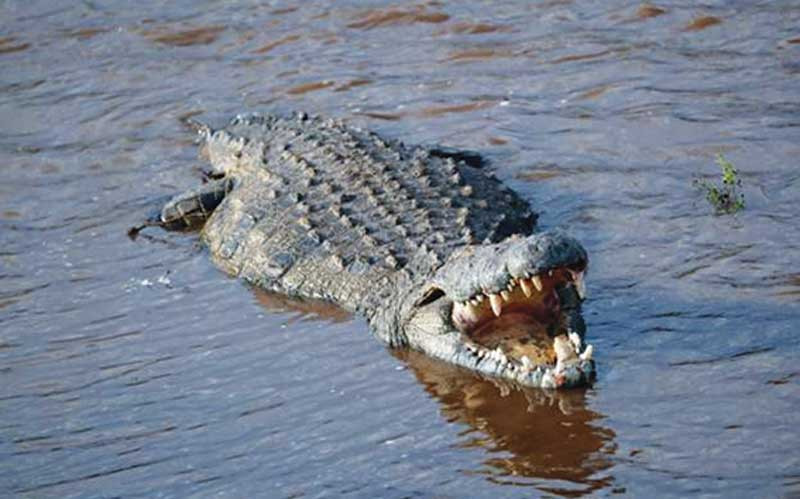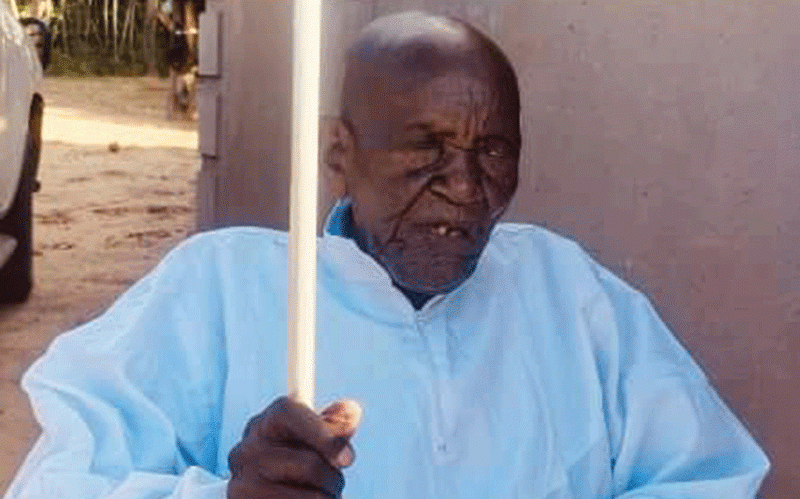
THE year 2024 kicked off on a sad note for Mbire district communities in Mashonaland Central province after two villagers were killed by crocodiles.
Situated about 365km North of Harare under four traditional chiefs the remote area is endowed with vast natural resources which include wildlife, which has, however, claimed dozens of lives of villagers and has destroyed many livelihoods over the years.
The recent wildlife attacks claimed the life of Pikinini Manyonga (45) from ward 12 under Manyonga village, who was attacked by a crocodile in Hunyani River on January 17 and died at Parirenyatwa Group of Hospitals a few days later.
He was fishing in the crocodile-infested river.
Another victim, Bhachi Zondiwa of ward 11, Mukunga village was attacked by a crocodile in Angwa River on January 14 and later died at Chitsungo Hospital. A father of eight from two wives, Zondiwa met his fate when he tried to cross a flooded Angwa River.
Annually, at least five people are killed by wildlife roaming Mbire district.
With a population of 84 000 in 17 wards under four traditional chiefs namely Chapoto, Chisunga, Matsivo and Chitsungo, the area is bearing the brunt of human-wildlife conflict with villagers calling on authorities to come up with lasting solutions to the problem.
Mbire Rural District Council chief executive officer Cloudious Majaya told NewsDay that human-wildlife conflict is negatively impacting villagers in the district.
- Questions raised over elephant census
- Zim seeks Cites dialogue
- Lack of funding cripples ZimParks compensation efforts
- Vultures could face extinction at Hwange National Park
Keep Reading
“It is affecting food security due to crop destruction and predation of livestock. Elephants, buffaloes, baboons, kudus, bushpigs and hippopotamuses destroy crops every farming season, leaving some families with hardly any food to eat. Lions, hyenas, leopards, wild dogs and jackals prey on livestock, particularly cattle, goats and sheep,” said Majaya.
In a rural set-up where livestock production and agriculture are the main sources of the communities’ income, problem animals pose a serious threat to livelihoods.
“lt exposes some families to hunger. Parents find it hard to pay school fees for their children resulting in dropouts and early marriages,” he said.
Human-wildlife conflict has also triggered social conflict.
“Gender-based violence is most prominent in families affected by problem animals due to lack of income. Some victims get permanent injuries and end up failing to fend for their families,” Majaya added.
Poaching, human encroachment onto wildlife areas, settlements in animal corridors, undesirable agricultural practices, deforestation, retaliatory attack and scarcity of water resources are major causes of human-wildlife conflicts affecting communities in Mbire.
In the hope of addressing human-wildlife conflict and poaching challenges in the district the African Wildlife Foundation (AWF) recently donated equipment worth US$33 000.
Zimbabwe National Parks and Wildlife Management Authority (ZimParks) director-general Fulton Mangwanya welcomed AWF’s support saying it will go along way in promoting infrastructural development in wildlife and adjacent areas.
“AWF has made quite a lot of development in the mid-Zambezi Valley landscape through infrastructural development,” Mangwanya said.
“The consignment will advance anti-poaching work, enhance patrol effectiveness, aid in deterring poachers and safeguard Zimbabwe’s wildlife heritage as well as dealing with human and wildlife conflicts.”
Olivia Mufute, AWF country director said the anti-poaching field equipment would help rangers and scouts to effecticely deal with human-wildlife-conflict issues.
“It will promote the peaceful co-existence of people and wildlife, strengthen their anti-poaching work and contribute immensely to three key pillars namely leading for wildlife, caring for wildlife and living with wildlife,” she said.
Majaya noted that the district is inhabited by a variety of wildlife species including four of the big five: Elephant, lion, buffalo and leopard.
Funding from AWF has been helping to improve livelihoods of communities which are custodians of wildlife resources as well as strengthening anti-poaching units.
As the vagaries of climate change also complicate the situation in wildlife areas, communities are being encouraged to refrain from such environmental degradation activities as streambank cultivation, starting veldfires, deforestation and contamination of wetlands.
“This will pave way for the establishment of a community-specific knowledge profile to assist in climate change mitigation, adaptation and resilience,” said Majaya.
Founded in 1961, AWF is the primary advocate for the protection of wild animals and their habitats as an essential part of developing Africa.
ZimParks spokesperson Tinashe Farawo said 50 people were killed by wildlife last year across the country.
"Elephants and crocodiles top the list of problem animals. We received over 3 000 distress calls that we attended to with assistance from local rural district councils that we work closely with around the country. We call on villagers to be cautious of water bodies so that they cannot be victims," said Farawo.
And in an effort to reduce the burden of wildlife attacks on communities, government has since approved the creation of a human-wildlife conflict relief fund aimed at helping to compensate victims of wild animal attacks.
In June last year, government said a Parks and Wildlife Amendment Bill that will provide for the creation of a Human-Wildlife Conflict Relief Fund, which will offer monetary relief to victims of wildlife attacks was being crafted.










